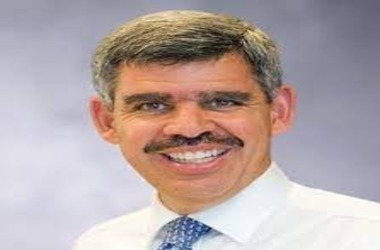
El-Erian is the top economic adviser of Allianz, the corporate parent company of PIMCO, one of the world’s biggest investment managers, where he previously served as CEO and co-chief investment officer. The Egyptian-American billionaire is also the president of Cambridge University’s Queens College. While El-Erian thinks bitcoin is a “highly disruptive force,” he doesn’t really think it will ever become a “global currency” capable of competing with the US dollar.
He said: “I believe it will always remain in the ecosystem, but it will never be a worldwide currency…It will not be able to replace the dollar.” However, he also does not believe that bitcoin can be “regulated out of existence.”
El-Erian also claimed that he purchased some bitcoin during the “crypto winter” of 2018, when the price of BTC plummeted to almost $3,000, although he did not reveal how much he purchased. “I was driven to purchase it – I truly was… I got the impression that I had encased it. “I had this level and an entrance point,” he said.
The economic adviser retained his BTC investment until late 2020, when bitcoin recaptured the $19,000 mark. He did, nevertheless, concede that he miscalculated when to sell owing to “behavior errors.”
He divided bitcoin investors into three categories. The foremost are “fundamentalists,” or long-term investors. The second group is professional investors who want to diversify their holdings, while the third group is day trading “speculators.” He went on to say that the first two sorts of investors have “very robust foundations for that market in the long run.” Nevertheless, he said that he would only feel safe purchasing bitcoin again when some of the market’s speculators had been “shaken out.”
As cryptocurrency becomes more widespread, he advises the crypto sector to interact with authorities sooner rather than later. He claims that this will help him escape the regulatory challenges that internet behemoths like Amazon, Google, and Facebook are experiencing. “When I talk to folks in the crypto business, I tell them that they have a duty not to replicate Big Tech’s mistakes.” “Main Tech’s big error was not realizing they were becoming systemically significant, so they didn’t participate in preventive regulatory conversations,” he said.
Nevertheless, the Allianz economic counsellor cautioned: “There are issues regarding illegal payments,” which crypto must keep in mind. There are fears about deception. There are questions regarding the platform’s stability.”
“The moment has come for more Western governments to cease disregarding the cryptocurrency boom as some combination of illegal payments systems and irresponsible financial speculation,” El-Erian said in August. “I tend to warn people: be very cautious,” he continued. “This is an asset that wishes to improve itself, but it can only do so if governments let it.”